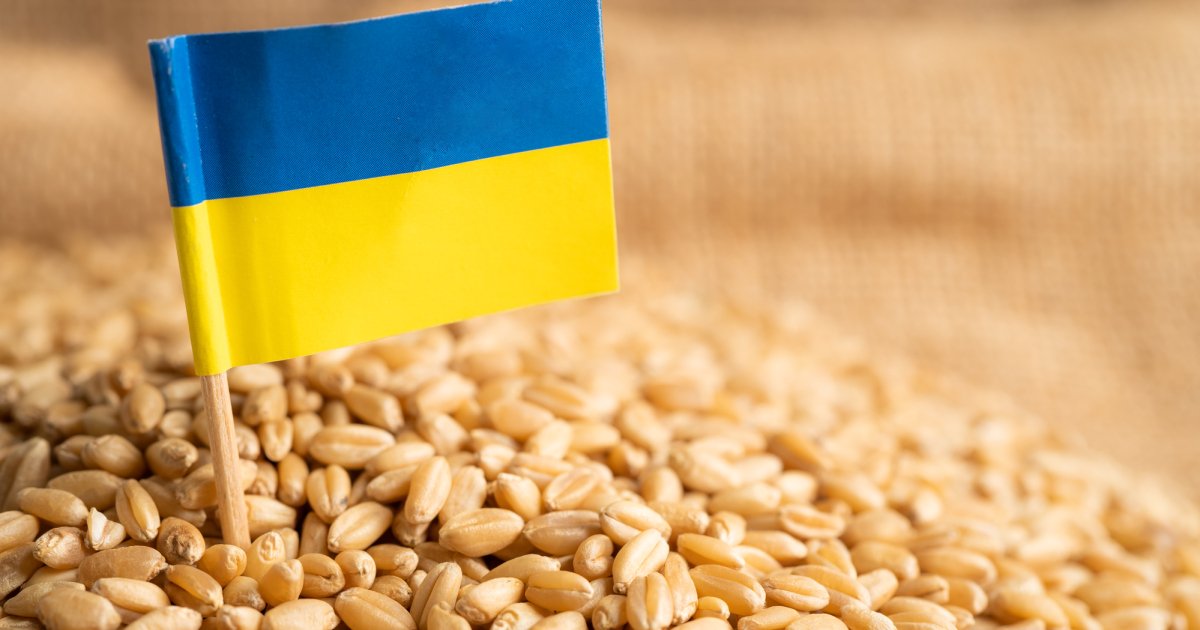Date of publication: 18 September 2023
Olena Omelchenko, Partner, Head of International Trade
Source: European Pravda
Late in the evening on 15 September, the European Commission finally announced its decision regarding the ban on Ukrainian grain and other food product imports into the EU.
Kyiv had expected the ban to be lifted. After all, European Commission documents explicitly stated that this restriction should not be extended. Moreover, the President of the European Commission, Ursula von der Leyen, had personally promised Volodymyr Zelenskyy that the restrictions would not be extended.
On the other hand, five EU countries – Poland, Hungary, Slovakia, Romania and Bulgaria – had appealed to the European Commission to extend the ban at least until the end of the year. The governments of Poland and Hungary even threatened to unilaterally extend the ban if the European Commission did not consider their arguments.
As a result, a compromise decision was reached: the ban would not be extended. Instead, Ukraine must implement self-restriction measures.
What does this mean? Has Kyiv benefited from this “compromise”? Let’s try to understand.
Chronicle of the Conflict
After Russia’s full-scale invasion of Ukraine and the blockade of Black Sea ports, the European Union unilaterally granted Kyiv additional duty-free access to the EU market in order to support Ukraine’s economy.
In other words, the EU lifted all restrictions on Ukrainian products – a privilege that Ukraine was supposed to receive only after becoming a full EU member.
As expected, this decision led to increased trade flows from Ukraine to neighbouring EU countries.
After some time, Poland, Slovakia, Bulgaria, Romania and Hungary claimed that their local farmers were being adversely affected due to the significant increase in grain imports from Ukraine and demanded that the EU impose an immediate ban on such imports.
However, and this is important, the European Commission lacked sufficient legal grounds to introduce protective measures to protect national producers. These countries had not provided enough evidence linking the increase in Ukrainian imports to losses for their national producers.
Instead of increasing pressure on the European Commission, these countries began unilaterally imposing trade restrictions on imports of wheat, corn, rapeseed and sunflower seeds from Ukraine at the national level.
This move challenged the European Union since, according to EU rules, trade policy falls under the jurisdiction of supranational EU bodies.
In search of a compromise within the EU, the European Commission, under pressure from these five member states, temporarily restricted Ukrainian grain imports until 15 September. The ban caused great concern in Kyiv because it contradicts the principles of free trade between the parties and is inconsistent with the Association Agreement, as well as WTO norms.
Consultations took place between the parties to resolve the issue on a special Coordination Platform.
Before the ban ended, several countries had announced their readiness to return to unilateral bans. In response, Ukrainian Prime Minister Denys Shmyhal announced the possibility of challenging such actions at the WTO.
Moreover, two countries, Poland and Slovakia, are set to hold parliamentary elections in the coming weeks. The decision on Ukrainian grain could significantly affect the election results, increasing the chances of anti-Western and anti-system forces winning.
The European Commission could not ignore these factors when making its final decision.
As a result, the European Commission announced in a press release on 15 September that due to the work of the Coordination Platform and temporary market distortion measures in the five neighbouring states that border Ukraine, the issue had been resolved and therefore, the European Commission would not be extending its ban on importing goods from Ukraine.
However, the European Commission noted that Ukraine had agreed to take legal measures within 30 days (including an export licensing system) to prevent grain volumes from increasing. Additionally, Ukraine agreed to introduce effective export control measures for four groups of goods starting from 16 September to prevent any market distortions in neighbouring EU member states.
As a result, Ukraine must submit its Action Plan by the evening of Monday, 18 September 2023.
At the same time, Poland, Hungary and Slovakia announced national import restrictions on Ukrainian grain. This poses a challenge for Brussels, as it will need to compel these countries to return to a unified trade policy.
Did Ukraine Win?
At present, it can be confidently stated that the European Commission reached its decision as a result of a high-level political agreement between the parties.
Before this decision, the European Commission was in an awkward position, as Ukraine could theoretically have challenged trade restrictions using the WTO dispute settlement mechanism or under the Association Agreement, as Ukrainian officials had already stated.
If Kyiv does decide to take this step, as indicated by recent statements from Ukrainian officials, this dispute could create a significant problem for the European Commission. In the event of a loss in arbitration, the European Commission would need to ensure the enforcement of the decision, including pressuring EU member states to lift their national trade restrictions.
Furthermore, third parties interested in obtaining Ukrainian grain as quickly as possible would be highly likely to join in any such WTO dispute. This includes countries that are strongly critical of the actions of the European Union.
Therefore, the EU needed a political solution rather than a legal one.
However, as a result of this compromise, Ukraine finds itself in an awkward position. The problem is that there are no legal self-restriction measures, yet Kyiv has to provide an action plan by the end of the working day on 18 September 2023.
The Association Agreement between Ukraine and the EU (Article 35) clearly stipulates that neither party shall introduce any bans, restrictions or measures of equivalent effect on the export or sale for export of any goods destined for the territory of the other party.
In addition, such self-restrictions are prohibited by the WTO Agreement on Safeguards (Article 11). This provision is mandatory for both the EU and Ukraine.
It stipulates that a WTO member shall not seek, take or maintain any voluntary export restraints, orderly marketing arrangements, or any similar measures on imports or exports of goods.
It appears that the export self-restriction to which Kyiv has reluctantly agreed will constitute a violation of trade rules by Ukraine.
However, the European Commission will not challenge it because this violation suits its purposes.
It seems that Ukraine has accepted this not very favourable step to avoid complications and division within the EU.
Perhaps this move is politically expedient for Ukraine – the vital preservation of the political unity of the European Union.
However, this could become the prologue to a much larger problem.
Ukrainian businesses and Ukrainians can only hope that future EU accession negotiations will not be accompanied by similar “compromises”.
There is no doubt that these negotiations will be challenging. European businesses know how to protect their own trade interests.
However, the question remains: is Ukrainian business ready for such negotiations? Does the current concession by Kyiv mean that Poland and other neighbouring countries now have the right to veto the terms of Ukraine’s EU accession?

